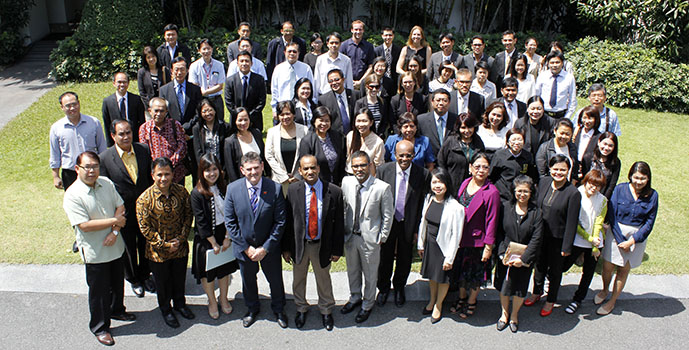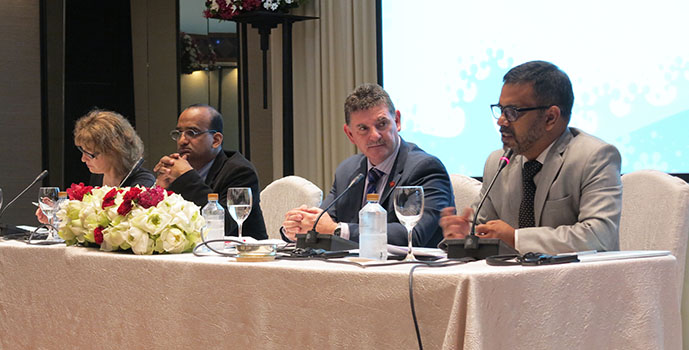- About Us
-
Who we are
-
- Publications
-
- ADPC Academy
-
MediaADPC'S NEWS
Incentives, not coercion, will boost BCP use Incentives, not coercion, will boost BCP use
15 Jun 2015
Bangkok, Thailand
Disaster management officials from nine APEC economies agreed this week that financial incentives are the best way to persuade SMEs to develop Business Continuity Plans (BCPs) to protect their operations.
At a public-private dialogue in Bangkok, the officials also agreed that making BCP use compulsory for SMEs would be counterproductive because most governments lacked the resources to promote and enforce BCP adoption.
Possible financial incentives included tax cuts, reduced insurance rates and lower interest rates to help SMEs overcome the initial costs of setting up their plans.
“Big things can be achieved in small steps – encouragement and persuasion are appropriate ways to introduce greater BCP use by developing economies,” said Dr. Thavirap Tantiwongse, Public Affairs Director at GlaxoSmithKline (Thailand).
“Economies are on different points of the spectrum resource-wise,” Dr. Tantiwongse said, “so a spectrum of approaches is necessary.”
“Further down the track, governments can develop standards for BCPs, and finally, regulations may be appropriate.”
The event organized by ADPC and the Department of Foreign Affairs of Australia brought government officials and private
sector companies from Indonesia, Philippines, Peru and Vietnam, among other countries, to Bangkok to discuss business
contiunity planning as a measure to reduce disaster losses.
The dialogue on 10 June was organized by Asian Disaster Preparedness Center and the Australian Department of Foreign Affairs and Trade as part of an Australian-led APEC project to boost the disaster resiliency of SMEs. It preceded a two-day workshop to build the capacity of government officials to promote BCP uptake – the third such workshop since 2012.
Over 70 percent of global natural disasters occur in the Asia-Pacific and these disasters are increasing in frequency and ferocity. Despite the rising threat posed to business operations, only 13 percent of SMEs have BCPs in place. As a result, many SMEs are experiencing business disruptions, financial losses and bankruptcy. Other adverse effects include the breakdown of regional supply chains and the collapse of communities.
The event was officially opened by Mr. Leslie Williams from the Australian Department of Foreign Affairs (2nd from the left)
and Mr. Shane Wright from ADPC (3rd from the left).
In 2011, following a string of disasters in the region, APEC Leaders called on the forum’s 21 member-economies to better promote and facilitate BCP adoption. Australia responded in 2012 by undertaking a targeted capacity-building program to help relevant officials better understand the benefits of BCPs and to more effectively promote them in the region.
“Governments at all levels, be it central, state or local, continue to face several policy and technical obstacles when promoting greater use of BCPs among SMEs,” said Mr. Leslie Williams from the Australian Department of Foreign Affairs and Trade.
“This program sought to identify these barriers and arm participants with the necessary tools and strategies to overcome them.”
The dialogue and workshop in Bangkok were held under the auspices of APEC’s Emergency Management Working Group. The events were attended by 74 officials and experts from Australia, Indonesia, Japan, Malaysia, Peru, Philippines, Singapore, Thailand, and Vietnam.Latest NewsRelated Trainings
-